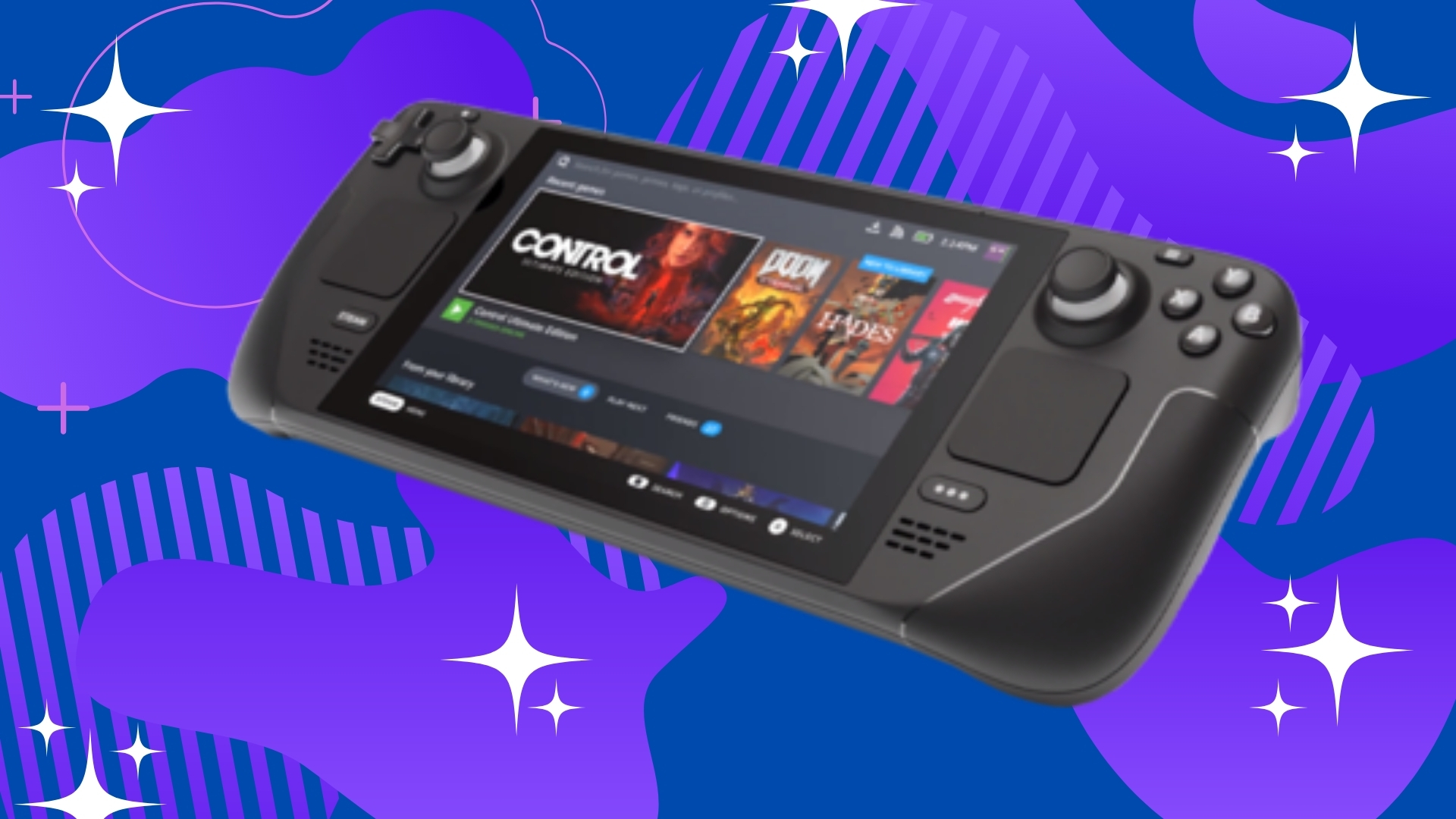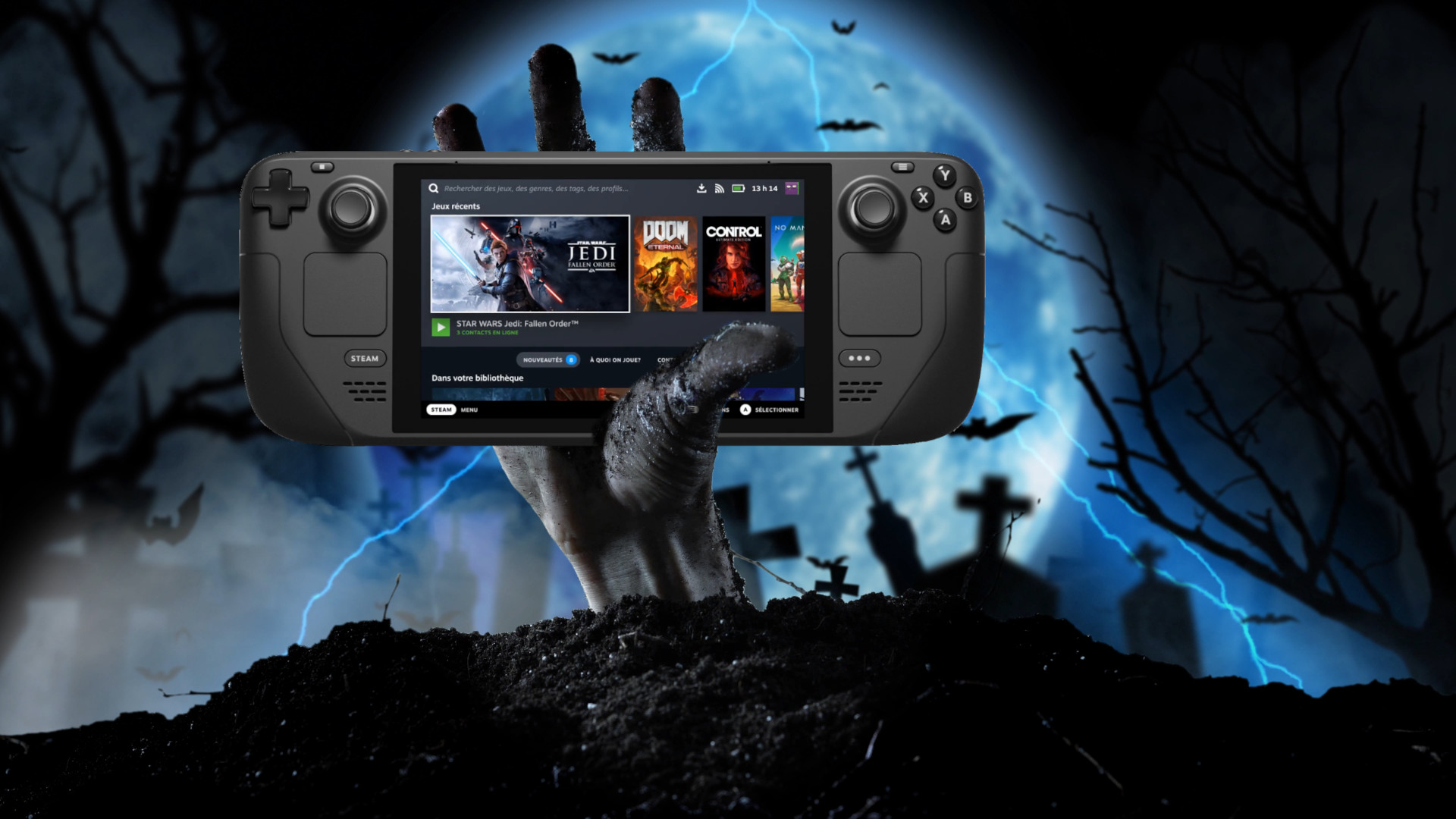Steam Deck might only be able to run 72% of the top 50 games on Steam
Pick and choose

Ever since Valve announced its Steam Deck handheld console, there’s been questions over how much of Steam’s huge library the device will be able to run – and it appears that, out of the box, it may struggle to run some of the most popular games.
As Toms Hardware reports, a recent survey by the Boiling Steam website found that of the current top 50 games on Steam, only 72% can be played on Linux, either natively or using Proton, the compatibility layer that allows Windows games to run in Linux.
- These are the best PC games
- Steam Deck vs Nintendo Switch OLED: which is better?
- These are the best free Steam games
While that’s not an awful percentage, it does mean that some incredibly popular games such as PUGB: Battlegrounds, Destiny 2, Rust and Apex Legends can’t run on Linux – and that’s not great news for the Steam Deck.
That’s because the Steam Deck will run its own Linux distro, Steam OS 3.0, so it’ll only be able to play games that can run on Linux. For Windows 10-only games, that means relying on Proton. While the Steam Deck has got a lot of people excited (us included), Valve needs it to be a success, as some of its previous hardware launches (such as Steam Machines), struggled to find a market.
If it’s not able to play some of the most popular games, that could put some potential customers off.
Why games won’t run on the Steam Deck
In a perfect world, the Steam Deck would be able to play every game on Steam, but that’s not going to be the case. As Valve’s Pierre-Loup Griffais hinted at in a recent interview, the hardware of the Steam Deck is strong enough to potentially run any game on Steam.
But, as James B. Ramey, who worked on developing Proton with Valve, clarifies, while the hardware could play any game, the software side of things is more tricky.
Get daily insight, inspiration and deals in your inbox
Sign up for breaking news, reviews, opinion, top tech deals, and more.
This goes back to Valve’s decision to use Linux as the operating system. While it makes a lot of sense – Valve gets greater control of the software, and won’t need to pay Windows 10 licensing fees to Microsoft, which would up the cost of the console – it does mean that getting some games to run won’t be straightforward.
Proton is a great tool that is constantly improving, and that has helped many games that have been coded for Windows 10 to run on the Steam Deck. However, some games – particularly competitive multiplayer titles – use anti-cheat software meaning they can’t currently be run in Linux, either via Proton or natively.
Analysis: Don’t panic

So, if you were looking forward to playing Destiny 2, or any of the other games that can’t currently run on Linux, on your Steam Deck when it launches later this year, should you be worried? We don’t think so.
As we mentioned earlier, Proton is constantly being worked on to expand the list of titles it supports, and that will continue up to – and beyond – the Steam Deck’s release. That will hopefully mean that when you get your hands on one, most Steam games you want to play on it will be compatible.
In a Steam Deck FAQ, Valve also states that it is working with the developers behind some of the biggest anti-cheat software to “get support for Proton ahead of launch.” If this works out, then that’ll hopefully make almost all of the top 50 Steam games compatible with the Steam Deck.
Finally, as Valve has been keen to point out (including in the aforementioned FAQ), the Steam Deck is essentially a PC, and that means you can replace Steam OS with an operating system of your choice – including Windows 10 (or Windows 11, for that matter). If your favorite game just won’t run in Linux, then installing Windows will hopefully sort that out.
It’s this kind of flexibility that could put the Steam Deck ahead of traditional consoles such as the Nintendo Switch.
- These are the best Steam games

Matt is TechRadar's Managing Editor for Core Tech, looking after computing and mobile technology. Having written for a number of publications such as PC Plus, PC Format, T3 and Linux Format, there's no aspect of technology that Matt isn't passionate about, especially computing and PC gaming. He’s personally reviewed and used most of the laptops in our best laptops guide - and since joining TechRadar in 2014, he's reviewed over 250 laptops and computing accessories personally.